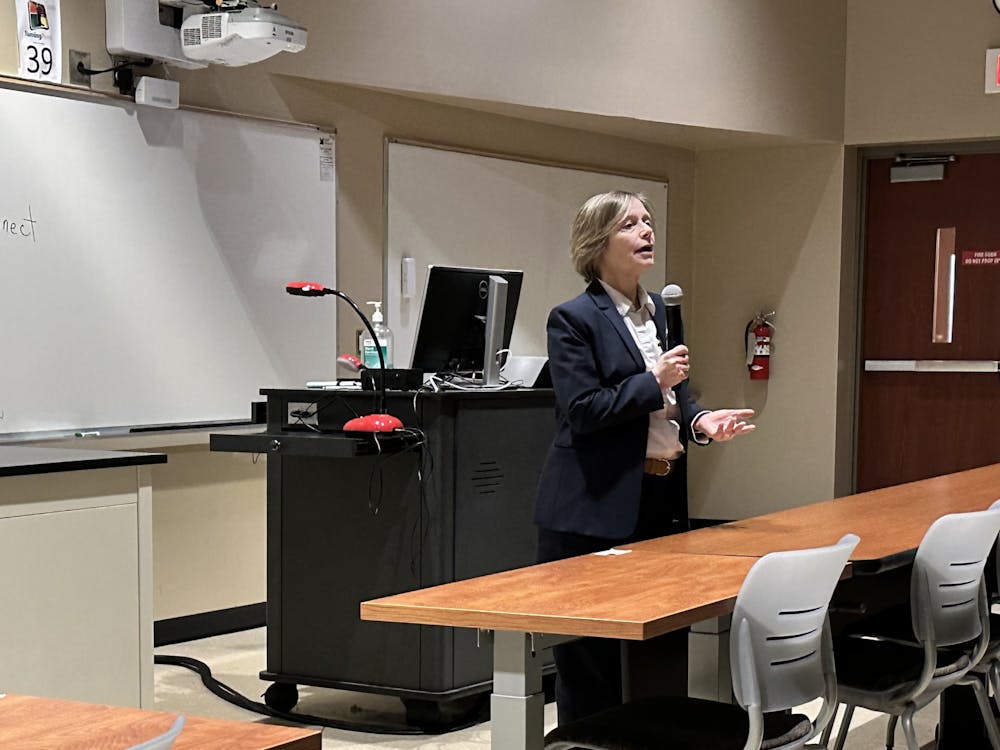By Megan Zahneis, For The Miami Student
The 2014 university salary roster has prompted questions from students and community members about who is earning what and why.
The salary roster contains a departmental listing, sorted by campus, of all faculty and staff and their salaries.
Director of University News and Communications Claire Wagner said that the differences in salaries - both within and between academic departments - are due to a variety of factors.
Some salaries are determined by the supply-and-demand principle of the workforce. For instance, fields like business, computer science, information technology and engineering are in high demand in the private sector.
"To be competitive and to draw anybody to be interested to coming to campus, salaries are sometimes boosted to bring in candidates who will become very good instructors and faculty members for our students," Wagner said.
University salaries, in other words, correspond to market value. The process of establishing a faculty member's salary begins during the hiring process, said Janet Cox, assistant provost for personnel and director of academic personnel services.
Miami's hiring process is what's known in the industry as "decentralized," meaning that salaries are set at the departmental and divisional levels rather than by a single office.
When department chairs set out to hire a new faculty member, they present a potential market-based salary range to their dean, who then passes the figure on to the provost's office for review.
"We want to make sure that the salary range when you are hiring someone doesn't cause inequity with our current faculty," Cox said. "So we [at the provost's office] also take a look at the salary range that is presented."
These ranges can be based on data provided by national surveys as well as internal salary surveys conducted by some organizations. Often, Miami uses the highest, lowest and median ranges from these surveys as a basis for setting salaries.
Beyond the hiring process, an "increment" system for raises is used across the university.
Enjoy what you're reading?
Signup for our newsletter
Miami's budget office determines projected revenue for the coming year, using that figure to designate funding for salary increases.
"In most of the years past, we have been able to do at least about a 2 percent raise. In some years and most recently we have been able to do a little higher raise," Cox said. "We do not give raises across the board, except for our classified - our hourly - employees. They do get across the board raises. For our faculty and salaried staff, their raise is based on merit - on performance."
Once the budget office allocates a certain amount of funds to raise, each dean and vice president is given an amount to distribute among their department. Department chairs and directors then recommend raises for each of their staff members.
Cox said promotions work in a similar manner.
"We try to retain [department chairs'] faculty or base salary - that is the salary that they would have if they were just faculty without an administrative job," Cox said. "We add a stipend and a supplement to indicate the complexity and the higher level of responsibility that comes with the administrative job without changing their base salary."
Department chair stipends are a flat rate based on the number of faculty within the department, and can range from $2,400 to $5,000 annually. Department chairs also receive a 10 percent salary supplement.
Tenure is another way faculty members may earn a raise.
"Our tenure track faculty have six years to make significant progress in their teaching skills, in their research and in their service to the university," Cox said. "There are reasons why you can come up early, there are reasons why you can delay, but most of the time it is at year six, you are reviewed to see if you can earn tenure."
The promotion from tenured faculty to associate professor constitutes a $6,000 base salary range, and promotion from associate professor to full professor raises a faculty member's base salary by an additional $9,000.
First-year Lindsay Marcum says the issue of whether all faculty and staff should receive more equal pay is a difficult one.
"That's a really hard question, because there are kids in college who are just here for the experience, not the education, " Marcum said. "So they wouldn't take their education seriously, and that would reflect on the professor's evaluation. It's not really fair to that professor if the student isn't putting in 110 percent [effort]."
All salaries are paid on a nine-month basis, with the university's fiscal year beginning July 1. This year's salary roster will be available Oct 1.




